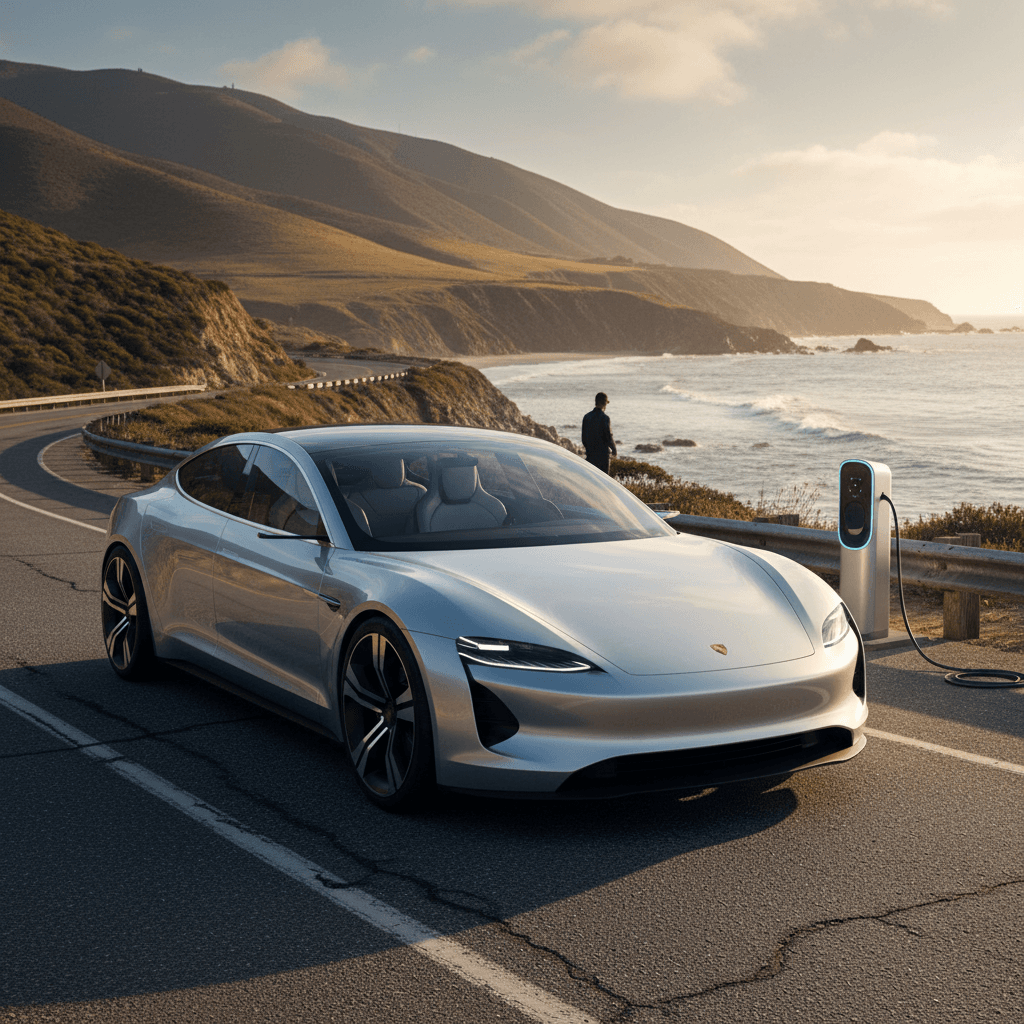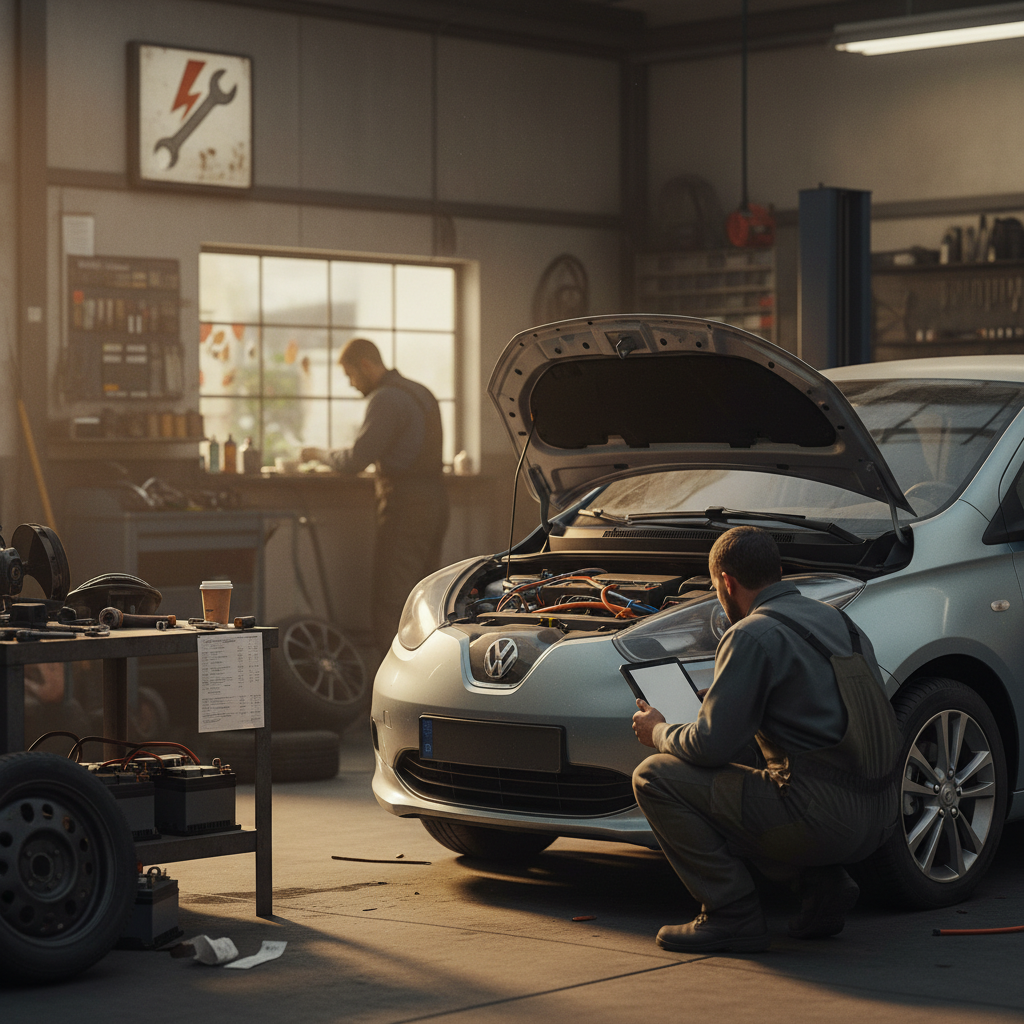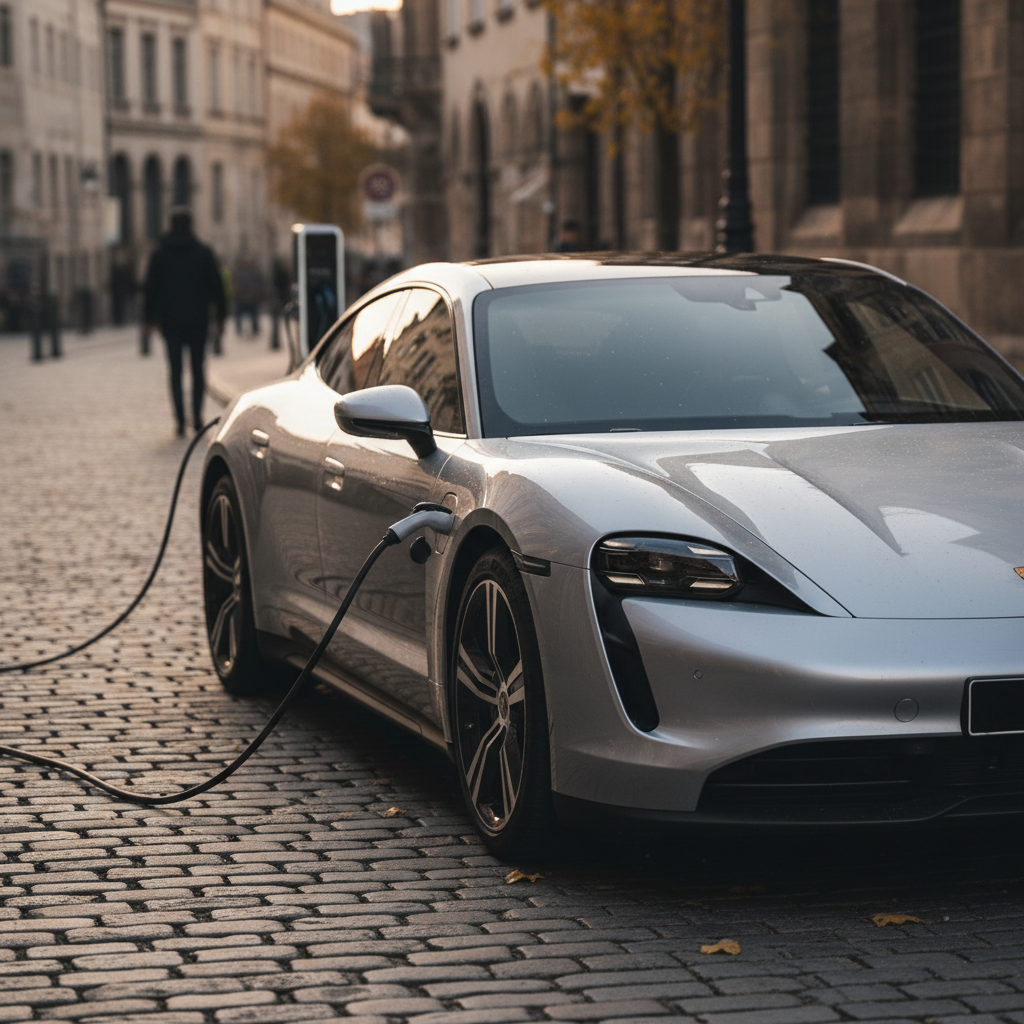If you’re shopping for an affordable electric car, a used Chevrolet Bolt is probably on your shortlist, and for good reason. It delivers real-world range that can rival newer EVs, hatchback practicality, and surprisingly lively performance, all at used-car prices that undercut most competitors. But the Bolt also has a well‑publicized battery recall history and some important differences between model years that you should understand before you buy.
Quick take

Why consider a used Chevrolet Bolt in 2025?
Used Chevrolet Bolt: key numbers at a glance
The first-generation Chevrolet Bolt EV launched for the 2017 model year with an EPA‑rated range of about 238 miles, making it the first mass‑market EV under Tesla money that could easily cover most commutes and day trips on a single charge. Later model years increased range to roughly 259 miles, putting used examples in the same ballpark as many newer, more expensive EVs.
Production of the original Bolt EV and its slightly larger sibling, the Bolt EUV, ended in late 2023 as General Motors shifted factories to its next‑generation Ultium platform. At the same time, GM has announced an all‑new Bolt returning for the 2027 model year on updated hardware. For used shoppers in 2025, that means the outgoing Bolt has completed its major recall campaigns and is firmly established in the marketplace, good news if you want proven real‑world data rather than first‑year surprises.
Who a used Bolt is perfect for
Bolt EV vs. Bolt EUV: model years and trims
Before you start shopping, it’s worth understanding the difference between the Bolt EV and the Bolt EUV, plus how the model years break down. In simple terms, the EV is the original hatchback, while the EUV is a slightly longer, more crossover‑like version with extra rear legroom.
Chevrolet Bolt EV & EUV: used-market cheat sheet
How the main Bolt variants stack up for used buyers.
| Model/Years | Body style | Approx. EPA range | Notable features | Good fit for |
|---|---|---|---|---|
| Bolt EV 2017–2019 | Compact hatchback | ≈238 miles | Original design, 60 kWh battery, earlier infotainment and seats | Budget-focused buyers who want range at the lowest price |
| Bolt EV 2020–2021 | Compact hatchback | ≈259 miles | Range bump, refined features; DC fast charge more often included | Daily drivers wanting more range without moving to EUV |
| Bolt EV 2022–2023 (refresh) | Compact hatchback | ≈259 miles | Updated exterior and interior, 11.5 kW onboard charger | Shoppers who want the nicest cabin at compact size |
| Bolt EUV 2022–2023 | Slightly larger, more upright | ≈247 miles | More rear legroom, available Super Cruise driver assist | Families and tall passengers who value space over a few miles of range |
Use this table as a quick reference when comparing listings for different Bolt model years.
Bolt EV: the compact original
The Bolt EV is a tall hatchback with a small footprint that’s easy to park and surprisingly roomy inside. Earlier cars (2017–2019) have a simpler interior and a bit less range, while 2020+ cars get the higher EPA estimate and some feature refinements.
For many used shoppers, a 2020–2021 Bolt EV is a sweet spot: strong range, mature software, and pricing that’s usually lower than the refreshed 2022–2023 cars.
Bolt EUV: more space, same DNA
The Bolt EUV, introduced for 2022, stretches the wheelbase and rear seat space, giving you a more crossover‑like feel while still driving like a compact EV. It typically offers slightly less rated range than a comparable EV due to added size and weight, but the difference is modest for most drivers.
Many used EUVs also feature more advanced driver assistance tech, including available GM Super Cruise on certain trims.

Range and charging: what to expect from a used Bolt
On paper, a used Chevrolet Bolt stacks up impressively well. Early cars offered around 238 miles of EPA‑rated range; later models nudged that to roughly 259 miles. Real‑world results, of course, depend on temperature, terrain, speed, and how the car has been driven and charged over time.
- Most drivers see 3–4 miles per kWh in mixed use, which translates to 200+ miles per charge in reasonable conditions.
- Winter weather and sustained highway speeds can trim range noticeably, plan on 25–35% less on cold, fast trips.
- Battery degradation has generally been modest for most owners, especially on cars that had their packs replaced under recall campaigns.
Charging basics for a used Bolt
Charging questions to ask when shopping used
Confirm DC fast‑charge capability
Ask the seller if the car has CCS DC fast charging and look for the extra two DC pins beneath the main AC port. Not all early Bolts included this option from the factory.
Ask about home charging habits
A Bolt that has been consistently charged at moderate levels on Level 2 is generally preferable to one fast‑charged hard and often left at 100% for long periods.
Test a full or partial charge
If possible, arrive with a lower state of charge and plug in to confirm the car charges correctly and at the expected power level on Level 2 or a nearby DC fast charger.
Battery recalls and fire risk: what you really need to know
You can’t talk about a used Chevrolet Bolt without talking about its battery recall history. GM issued multiple recalls because of rare manufacturing defects in the LG Chem battery cells that could, in specific circumstances, increase the risk of fire. The upshot for used buyers in 2025: most Bolts on the road have had their battery packs replaced or updated software installed, and that can actually be a positive.
Don’t ignore the recall status
How the recalls affect used Bolt shoppers
Problems early on; upside for today’s buyer when handled correctly.
Battery replacements
Diagnostic software updates
Residual caution

Used Chevrolet Bolt prices and value
Exact pricing will vary by mileage, condition, trim, and region, but in late 2025 the used Chevrolet Bolt still occupies one of the most affordable corners of the EV market. Early Bolt EVs with higher miles often sit in the low‑ to mid‑teens, while newer, low‑mileage 2022–2023 Bolt EV and EUV models can stretch into the mid‑$20Ks and beyond. Compared with many rival EVs from the same era, that’s strong value for the range and equipment you get.
Total cost of ownership advantage
- Early, higher‑mileage 2017–2018 Bolt EV: often the least expensive entry point, good for shorter commutes or second‑car duty.
- 2020–2021 Bolt EV: popular sweet spot balancing newer hardware and a reasonable price.
- 2022–2023 Bolt EV and EUV: best for buyers who prioritize the refreshed interior and features, and are willing to pay more for a newer car.
Leverage financing for a newer Bolt
Inspection checklist for a used Bolt EV or EUV
EVs eliminate many traditional used‑car worries, no oil changes, no exhaust system, no transmission in the conventional sense, but a used Chevrolet Bolt still deserves a careful look. Here’s a focused checklist to use whether you’re buying from a private seller or a dealer.
Used Chevrolet Bolt inspection checklist
1. Verify recall and service history
Ask for a printout of completed recall work and dealer service records. Cross‑check the VIN on GM’s recall website to confirm there are no outstanding campaigns, especially battery‑related ones.
2. Review battery health data
Use an OBD‑II scan tool or a professional diagnostic report, like the <strong>Recharged Score battery health report</strong>, to see estimated remaining capacity and any logged faults. This tells you how the pack is doing today, not just what it was rated for new.
3. Inspect the charging port and cables
Look for corrosion, bent pins, or damage around the J1772/CCS inlet. Confirm that the portable Level 1 cable is included, and check its condition.
4. Test drive at highway speed
Listen for unusual whines, rattles, or wind noise. Verify that regenerative braking feels smooth, steering tracks straight, and there’s no vibration at speed that might indicate wheel or tire issues.
5. Check tires and brakes for uneven wear
The Bolt’s instant torque can be tough on front tires. Uneven wear may signal alignment issues or aggressive driving. Regenerative braking often means brake pads wear slowly, but they should still be inspected.
6. Confirm infotainment and safety features
Test the touchscreen, Bluetooth, backup camera, and any advanced driver assistance features (lane keeping, adaptive cruise, Super Cruise where equipped). Replacing cameras or radar sensors can be expensive out of warranty.
Walk away if something feels off
Ownership costs: insurance, maintenance, and charging
Once you own a used Chevrolet Bolt, the day‑to‑day cost picture is generally friendly. You’ll avoid gasoline entirely, skip many traditional maintenance items, and likely spend most of your time charging at home where energy rates are predictable.
What it really costs to live with a used Bolt
Big savings in some areas, a few items to budget for.
Charging costs
Maintenance
Insurance & repairs
Think about your charging ecosystem
How Recharged helps you buy a used Chevrolet Bolt with confidence
Because the Chevrolet Bolt’s value depends so heavily on battery health and recall history, it’s the kind of EV where transparency really matters. That’s exactly the gap Recharged was built to fill.
Buying a used Chevrolet Bolt through Recharged
More than a listing, end‑to‑end support for EV buyers.
Recharged Score battery health report
Verified recall & service status
Financing, trade‑in & delivery
If you already own a Chevrolet Bolt and are thinking about a change, Recharged can also help you get an instant online offer or consign your car to reach EV‑savvy buyers. Either way, our goal is to make moving into your next EV as straightforward as owning it.
Used Chevrolet Bolt FAQ
Used Chevrolet Bolt: frequently asked questions
Is a used Chevrolet Bolt right for you?
For the right driver, a used Chevrolet Bolt is still one of the smartest plays in the EV world. You get real‑world range that rivals many newer cars, a compact footprint that’s easy to live with, and the potential bonus of a relatively fresh, warrantied battery pack thanks to earlier recall work. The trade‑offs are slower DC fast charging than the latest EVs and the need to be diligent about recall history and battery health when you shop.
If you want a practical, budget‑friendly EV for commuting, errands, and occasional weekend trips, and you’re willing to spend a little time up front finding a well‑cared‑for example, a used Bolt EV or EUV belongs on your test‑drive list. And if you’d like help evaluating options, understanding a specific car’s battery health, or sorting out financing and trade‑in details, Recharged is set up to guide you from first click to driveway delivery.



